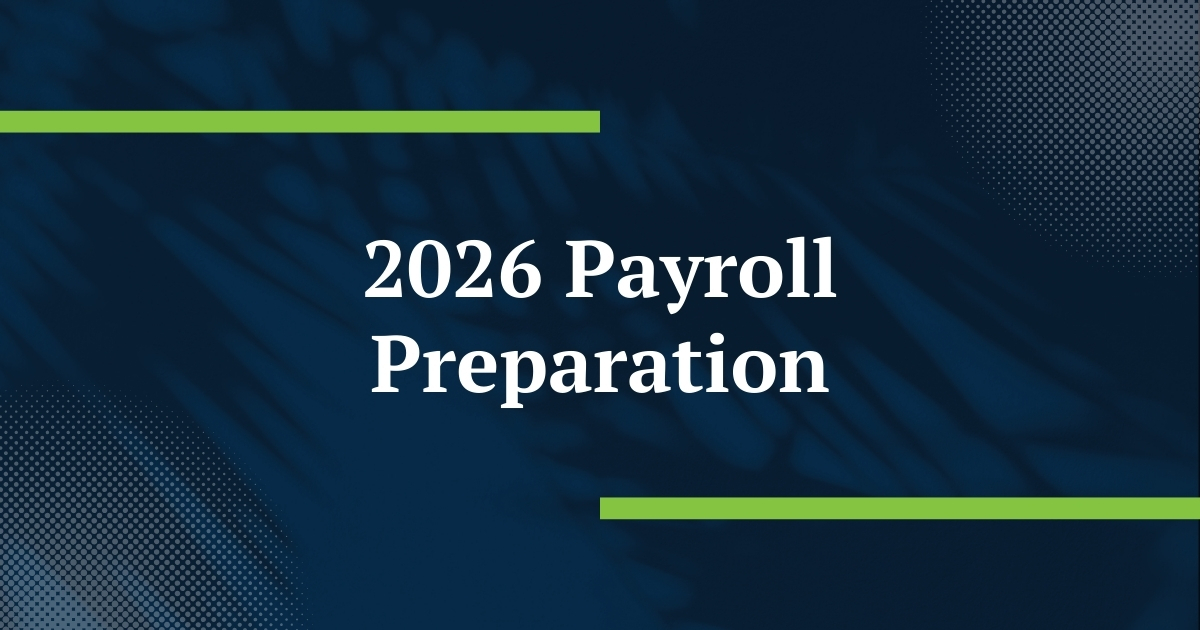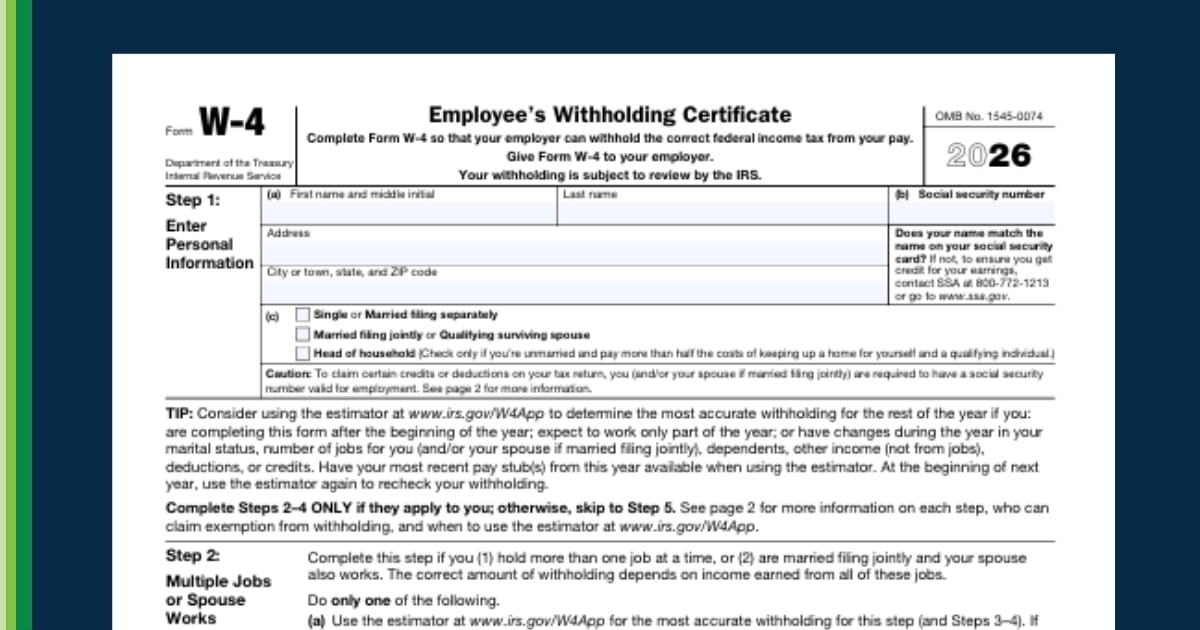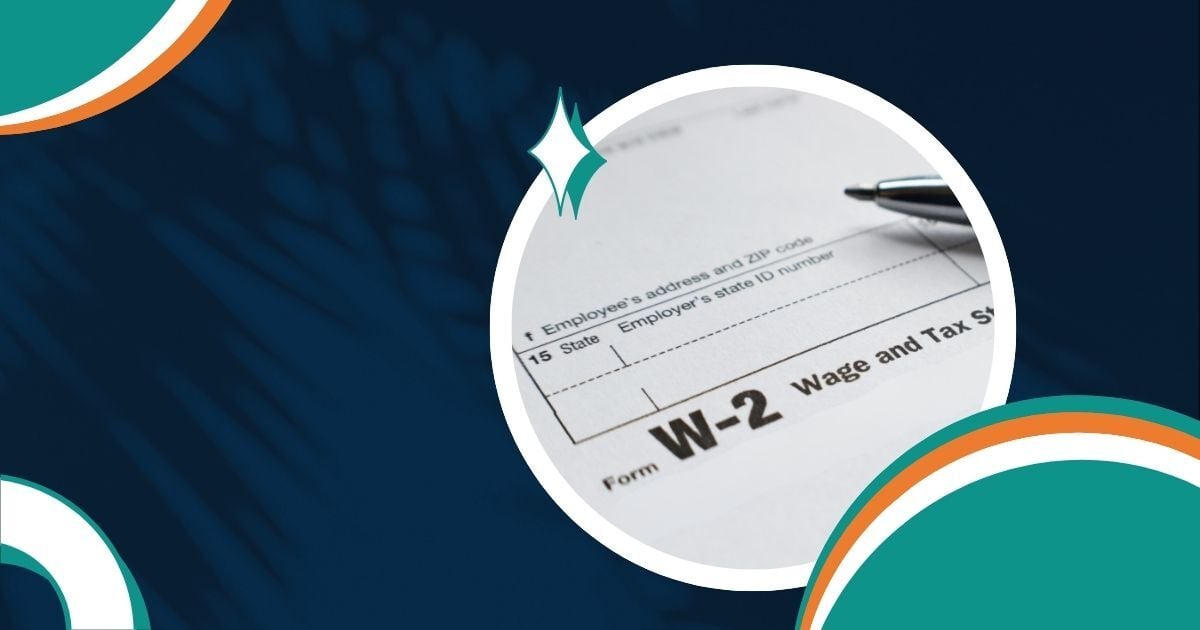In the second installment of our Year-End Form Webinar Series, Andrew King, Tax and Year-End Developer, covered the essential tax forms employers need to file at year-end and throughout the year, focusing on Forms 940 and 941. Here’s a recap of the key points and practical advice shared.
Watch the full webinar here:
Understanding Year-End Payroll Returns
We began with an overview of the tax returns due at the end of the year, including Forms 941, 940, 8027, and W-2. Each form serves a unique purpose, from reporting income taxes to tracking wages and tips. Filing these correctly and on time is critical to avoid penalties.
Form 941: Quarterly Tax Return
 Form 941 reports income taxes, Social Security, and Medicare taxes withheld from employees’ paychecks. It also determines if the employer owes additional taxes or is eligible for a refund.
Form 941 reports income taxes, Social Security, and Medicare taxes withheld from employees’ paychecks. It also determines if the employer owes additional taxes or is eligible for a refund.
Form 940: Annual FUTA Return
 Next, we covered Form 940, which reports the Federal Unemployment Tax (FUTA). This tax, paid only by employers, helps fund unemployment compensation. Employers should ensure FUTA is paid correctly as it cannot be withheld from employees.
Next, we covered Form 940, which reports the Federal Unemployment Tax (FUTA). This tax, paid only by employers, helps fund unemployment compensation. Employers should ensure FUTA is paid correctly as it cannot be withheld from employees.
Form 8027: Reporting Receipts and Tips
 For businesses with tipped employees, we discussed the significance of Form 8027. This form reports yearly receipts and allocated tips to the IRS, ensuring that employees report accurate tips for taxation.
For businesses with tipped employees, we discussed the significance of Form 8027. This form reports yearly receipts and allocated tips to the IRS, ensuring that employees report accurate tips for taxation.
Form W-2: Employee Wage and Tax Withholding
 As part of the year-end process, we discussed the requirements for issuing Form W-2 to employees. Employers must file this form for employees who earned more than $600 or had taxes withheld. Meeting the January 31 deadline is crucial, though extensions are available if needed.
As part of the year-end process, we discussed the requirements for issuing Form W-2 to employees. Employers must file this form for employees who earned more than $600 or had taxes withheld. Meeting the January 31 deadline is crucial, though extensions are available if needed.
Common Filing Errors and Pitfalls
 We also covered common filing mistakes, such as misinterpreting Line 1 on Form 941, which should reflect the number of employees on the 12th day of the third month of the quarter, not the total number of employees paid during the quarter. Accuracy in tax credits and form adjustments is essential to avoid issues.
We also covered common filing mistakes, such as misinterpreting Line 1 on Form 941, which should reflect the number of employees on the 12th day of the third month of the quarter, not the total number of employees paid during the quarter. Accuracy in tax credits and form adjustments is essential to avoid issues.
Correcting Mistakes with Form 941-X
 For employers who have made mistakes on previously filed Forms 941, we discussed the process for filing Form 941-X to amend the returns and correct misreported data. This step-by-step guide ensures compliance by correcting errors from prior quarters.
For employers who have made mistakes on previously filed Forms 941, we discussed the process for filing Form 941-X to amend the returns and correct misreported data. This step-by-step guide ensures compliance by correcting errors from prior quarters.
Compliance Considerations and Filing Deadlines
 Staying on top of filing deadlines is essential to avoid penalties. Key deadlines include January 31 for Forms 940 and W-2, as well as quarterly deadlines for Form 941. Automating these processes can reduce the risk of missed filings and late fees.
Staying on top of filing deadlines is essential to avoid penalties. Key deadlines include January 31 for Forms 940 and W-2, as well as quarterly deadlines for Form 941. Automating these processes can reduce the risk of missed filings and late fees.
The Role of Tax Software
 Automation can be a game changer when it comes to managing year-end returns and payroll taxes. Using tax solutions, such as Greenshades, to handle these filings can minimize manual effort, reduce errors, and streamline the submission process. We covered the benefits of using technology to simplify compliance with IRS requirements.
Automation can be a game changer when it comes to managing year-end returns and payroll taxes. Using tax solutions, such as Greenshades, to handle these filings can minimize manual effort, reduce errors, and streamline the submission process. We covered the benefits of using technology to simplify compliance with IRS requirements.
Greenshades assists businesses throughout the year-end filing process by managing Forms 940, 941, W-2s, and other tax filings, offering a comprehensive solution that ensures compliance and eases administrative workloads. Our users benefit not only from our user-friendly platform but also from the expertise of our experienced payroll tax service representatives, who provide long-term support, understand your specific needs, and offer assistance whenever required.
Tackle Year-End Forms with Greenshades
To wrap up the webinar, we summarized the key points: an overview of the critical forms, common filing errors, and how automation simplifies compliance. Attendees were reminded to leverage Greenshades to streamline year-end activities.
We hope you found this session informative and that the tips shared will help you avoid common pitfalls as you approach year-end filing. For more details on how Greenshades can support your tax and payroll needs, feel free to contact us or request a personalized demo. Stay compliant and efficient with Greenshades!
























.jpg)


